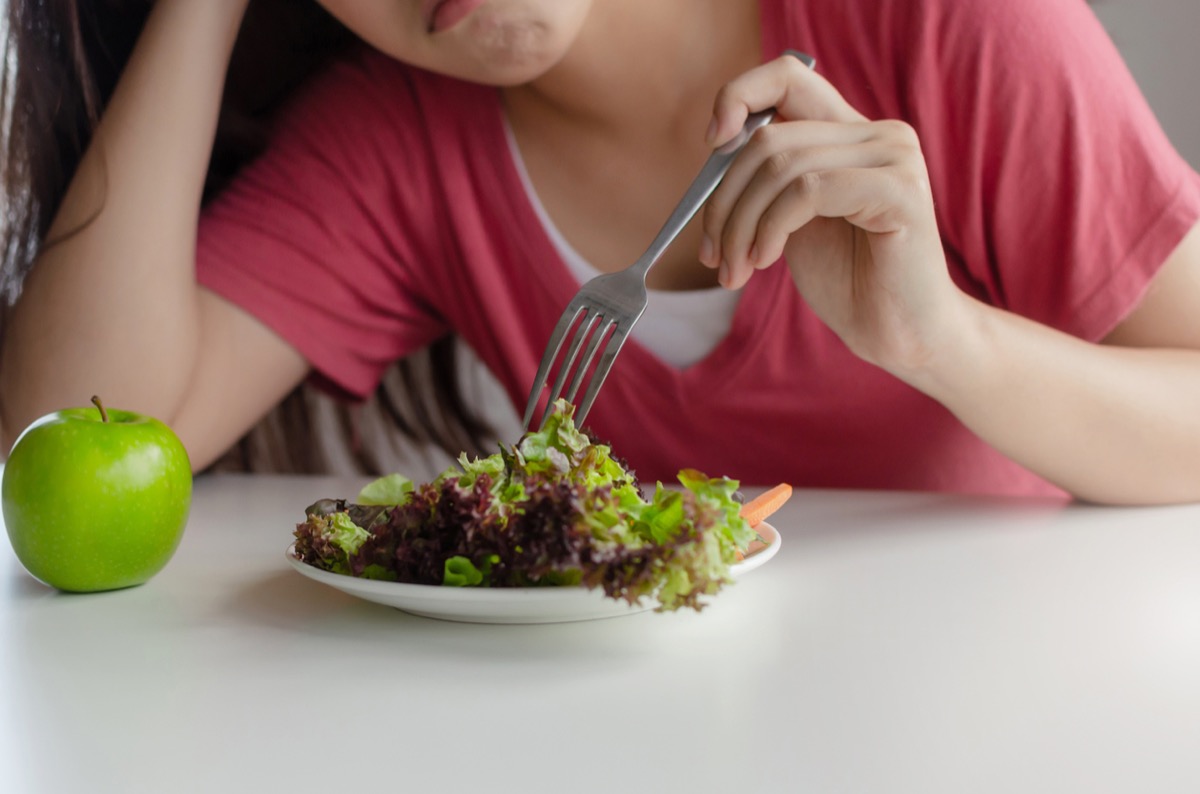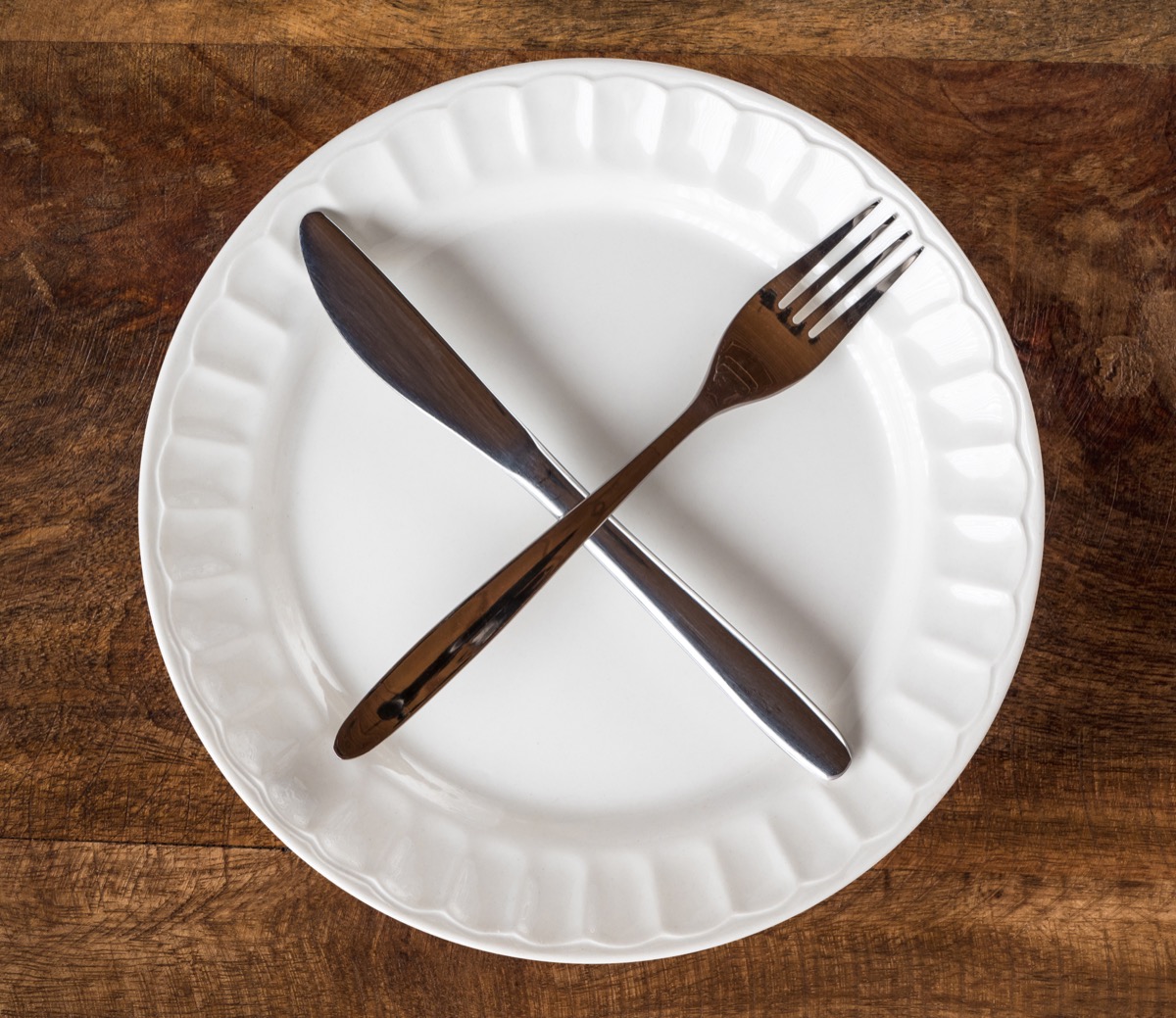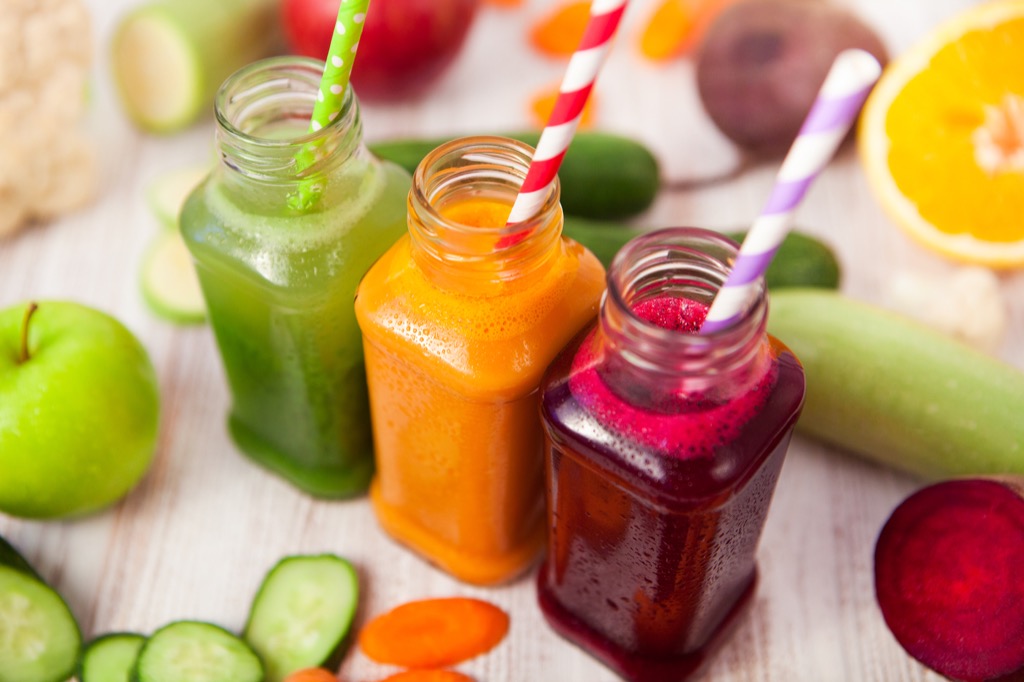I’m a Fitness Coach and Wouldn’t Recommend These Methods to Lose 10 Pounds

The weight loss industry, worth hundreds of billions of dollars, is not only booming—it’s growing. As a result, it’s not uncommon for everyday people to feel confused by competing messages on how to actually shed those excess pounds. Just as importantly, many of us lose sight of why we want to lose weight in the first place, making it all too easy to resort to unhealthy gimmicks, rather than thoughtful, health-oriented solutions. By taking a step back and figuring out where it all went wrong, it’s possible to build a better weight loss plan that’s sound, simple, and sustainable, experts say.
Women’s fitness coach and content creator Emily Kerley is all too familiar with the mistakes people make when they’re hoping to lose weight and says that identifying these common missteps can put you on a better path forward. In fact, in one recent post, she shared the things she would never do if she wanted to lose 10 pounds—each counterproductive, unsustainable, or unhealthy. Read on to hear Kerley’s advice for anyone interested in losing weight with their long-term health in mind.
RELATED: If You Want to Lose Weight, “Avoid These Foods Like the Plague,” Fitness Expert Says.
1
She would never cut out carbs and fats.

If your weight loss plan involves eliminating any major food groups, this could affect its long-term sustainability—not to mention your overall health. Kerley says that carbohydrates and fats are two nutrients that are commonly vilified in the weight loss world, but emphasizes that she would never strike these from her diet.
“Both of these are essential for your energy, hormone health, metabolism function, and so much more,” she explained in a recent TikTok post.
Instead of cutting out these two essential nutrients, it’s much better to assess the type and quality of foods you consume and make more selective changes. For instance, cutting out simple or refined carbohydrates such as added sugars or processed grains while still emphasizing whole grains in your diet can help lead to healthy weight loss.
Similarly, you can lose weight and improve nutrition by cutting out foods that are high in saturated fats, while still eating healthy, monounsaturated and polyunsaturated fats from sources such as avocados, nuts, chia seeds, fatty fish, and more.
RELATED: The 80/20 Rule Promises Easy Weight Loss—But Does It Work?
2
She would never do excessive cardio.

Next, Kerley points out a common mistake people make while exercising to lose 10 pounds: She says that doing excessive cardio instead of a more balanced fitness routine can leave you struggling to sway the scale.
“I would never do hours of cardio,” the fitness trainer says. “Running on the treadmill every day is not going to shed your fat. Stick to weight training and a sprinkle of cardio afterwards,” Kerley advises, adding in a separate post that she would aim for four strength training sessions per week.
Recent research corroborates the notion that weight training can, in fact, have a greater impact on fat loss and body composition than aerobic exercise alone. However, for the sake of your overall health, including your heart health, a balanced approach is best.
Aim for at least 150 minutes of moderate-intensity exercise per week, including strength training, cardiovascular training, and balance-building exercises, the Centers for Disease Control and Prevention (CDC) suggests.
3
She would never skip meals.

Far too many people resort to extreme caloric restriction as a means of accelerating their weight loss. However, Kerley suggests that skipping meals to cut calories is a dangerous strategy that’s highly likely to backfire.
“I would never skip meals. You think you’re saving yourself calories but in reality, you’re just going to end up binge eating and snacking later that night. Plus, your body needs fuel from food to build lean muscle and in turn help with your fat loss,” she says.
Kerley adds in a separate TikTok post that if you skip breakfast in particular, you’re missing an important opportunity to “set up your metabolism for the day.” Instead, she recommends eating a meal that contains 30 grams of protein.
“Adding protein first thing after waking up will help your metabolism to run smoothly throughout the day, and will work toward that daily protein goal that you need to lose fat,” she says.
RELATED: 10 Best Foods to Eat in the Morning for a Faster Metabolism, Nutritionists Say.
4
She also avoids quick fixes.

In another post, Kerley shares a fourth mistake people make when they’re hoping to lose 10 pounds: They look for rapid results in crash diets, juice cleanses, and other fad strategies.
“These quick fixes can look very enticing, but they’re quick fixes for a reason. If you can’t picture yourself sticking to a diet five, 10, 15 years in the future, it’s not sustainable for you,” she warns. “You’re just going to end up rebounding any weight that you do lose during those quick fixes even faster than you lost it.”
The fitness coach adds that any diet that you commit to should be flexible enough to include the foods that you enjoy. If you find yourself nixing date nights or occasional treats in service of your weight loss plan, this is a red flag that your strategy might ultimately be short-lived and unsuccessful.